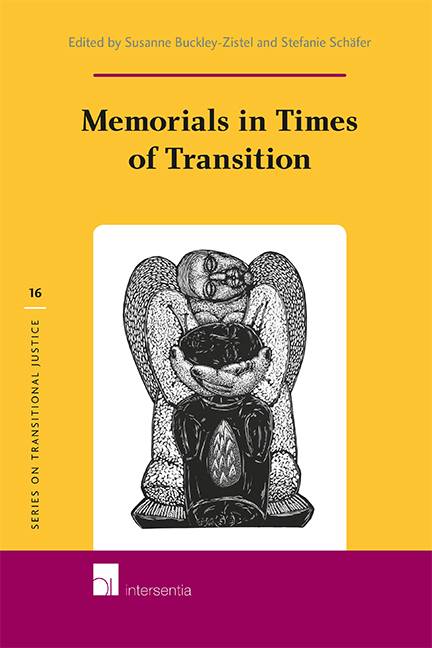Crossref Citations
This Book has been
cited by the following publications. This list is generated based on data provided by Crossref.
Volčič, Zala
and
Simić, Olivera
2016.
Spatializing Peace and Conflict.
p.
286.
Björkdahl, Annika
and
Buckley-Zistel, Susanne
2016.
Spatializing Peace and Conflict.
p.
1.
Sciandra, Elena
2017.
The Palgrave Handbook of Global Counterterrorism Policy.
p.
135.
Friedrich, Mona
Stone, Philip R.
and
Rukesha, Paul
2018.
The Palgrave Handbook of Dark Tourism Studies.
p.
261.
Sumartojo, Shanti
2018.
The Palgrave Handbook of State-Sponsored History After 1945.
p.
449.
Atkinson-Phillips, Alison
2018.
Commemoration as Witnessing: 20 Years of Remembering the Stolen Generations at Colebrook Reconciliation Park.
de arte,
Vol. 53,
Issue. 2-3,
p.
103.
2019.
Justice Framed.
p.
281.
2019.
Justice Framed.
p.
131.
2019.
Justice Framed.
p.
xi.
Friedman, Rebekka
Sánchez, Nelson Camilo
and
Wiebelhaus-Brahm, Eric
2019.
As War Ends.
p.
304.
Björkdahl, Annika
and
Kappler, Stefanie
2019.
The Creation of Transnational Memory Spaces: Professionalization and Commercialization.
International Journal of Politics, Culture, and Society,
Vol. 32,
Issue. 4,
p.
383.
2019.
Justice Framed.
p.
59.
2019.
Justice Framed.
p.
173.
2019.
Justice Framed.
p.
21.
2019.
Justice Framed.
p.
241.
2019.
Justice Framed.
p.
1.
Zunino, Marcos
2019.
Justice Framed.
2019.
Justice Framed.
p.
229.
Hoondert, Martin J.M.
and
Varona Martínez, Gema
2020.
Introduction.
Oñati Socio-Legal Series,
Vol. 10,
Issue. 3,
p.
535.
Mannergren Selimovic, Johanna
2020.
Gender, narrative and affect: Top-down politics of commemoration in post-genocide Rwanda.
Memory Studies,
Vol. 13,
Issue. 2,
p.
131.



